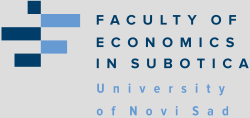Tax Benefits of R&D in Crisis Circumstances - Accounting Aspects
DOI:
https://doi.org/10.46541/978-86-7233-428-9_400Keywords:
Research and Development (R&D), Innovations, Tax reliefs, LiquidityAbstract
In times of crisis, one of the major challenges for businesses is maintaining an appropriate level of liquidity. During periods marked by supply and/or demand shocks caused by various economic, political, or natural influences, most companies experience a drop in sales and a decreased likelihood of collecting receivables on time, if at all. In conditions of reduced business activity and lower cash inflows from operations, businesses are forced to seek additional sources of liquidity to ensure their survival despite the crisis. Tax reliefs can serve as a means for companies to secure additional liquidity sources, i.e., a way to reduce the costs they face. This paper primarily explores the possibility of reducing cash outflows related to gross wages paid. One form of tax relief available to companies in the Republic of Serbia is for research and development (R&D) activities. If a company decides to engage in R&D activities, it will pay a lower amount of taxes and contributions for employees involved in these activities, thereby saving funds and improving its liquidity. The paper presents which activities are considered R&D according to the legal and sub-legal regulations of the Republic of Serbia and the conditions necessary for a company to benefit from tax reliefs. Additionally, the paper discusses the accounting aspect of calculating wages for employees engaged in R&D activities.


